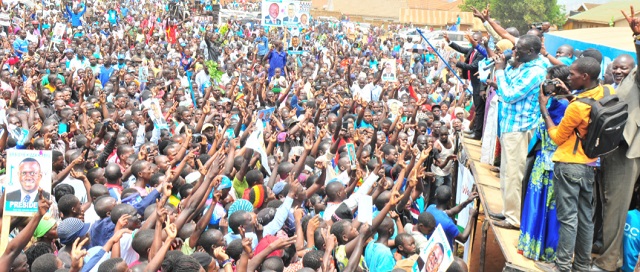
To postpone or not elections
Some political pundits have suggested that if Byabakama is running out of time to hold a transparent election, then the country should go into a “state of emergency” so that the current government gets another six months.
But Shaun Mackay, the external advisor at the Netherlands Institute for Multiparty Democracy which supports democratic institutions in Uganda, noted recently in a blog post for his organisation that declaring a state of emergency could well provide a pretext for those in danger of losing power to continuously cancel or postpone elections. As a consequence, democracy will deteriorate.
“Any decision to postpone or cancel elections should not be made lightly,” Mackay said, “Where circumstances permit, elections should always be held, and held on time.”
Mackay said even at the height of the Spanish flu which killed hundreds of thousands of Americans, elections were held in the U.S. The solution to all this, Mackay says, “is to put democracy at the heart of decision making.”
The coronavirus outbreak has forced several countries to disrupt their electoral roadmaps this year, with some postponing the elections altogether while others have chosen to alter their original roadmaps.
International health experts said the high incidence of COVID-19 infections among politicians in Iran is speculated to have resulted from contact with constituents during the February elections.
In West Africa, parliamentary elections and a referendum on the Constitution was held in March 2020 in Guinea while in Ethiopia, the parliamentary elections to elect the Prime Minister, initially scheduled for August 2020, have been postponed until “the pandemic is over.”
In the Central African Republic where presidential and parliamentary elections are planned for December 2020, a possible amendment to the Constitution in favour of a two-year extension of the current presidential term is circulating widely.
In Burkina Faso, presidential and legislative elections are slated for November 2020, but many delays in the election organisation process have been observed due to the spread of COVID-19. In Tanzania, which has been criticized for its management of the pandemic, the voters’ register has been updated and the election campaign is scheduled to start in July.
Milking COVID-19 crisis
Kabuleta says the EC is just “covering up” for President Museveni. “COVID-19 has been a perfect excuse for many things and it is going to be an excuse for so many others. This is just a cover-up and they are milking the COVID-19 crisis.”
“There are so many things that can be made right through an election for which we would rather risk COVID-19 to go and make something right once and for all like removing this failed government and putting one which prioritizes health.”
Kabuleta has issued a notice of intention to sue the EC should Byabakama go ahead with the roadmap. He says the EC is depriving a big percentage of Ugandans the right to listen to the political candidates before they decide whether to vote or not to vote for them. Kabuleta also thinks that the opposition political party candidates stand no chance of reaching out to the electorate should the campaigns be taken to radio, television and online platforms.
“We all know that there has not been fairness for opposition candidates when it comes to access to radio stations upcountry,” he says, “We know that the Resident District Commissioners (the president’s representatives) are almost under instruction not to allow opposition candidates not to step into the studios of radio stations.”
For MP Kyagulanyi, a “scientific election” is not an election. He says Byabakama has no choice but to hold a “real election.”
“Uganda’s Constitution promises Ugandans a free and fair election,” he says.
“A free and fair election means that every person who has a right to vote can go and express his or her will voluntarily, without being influenced by money and intimidation. It means that all candidates are given equal opportunities to convey their message to the voters so that voters can make an informed choice.”
****
 The Independent Uganda: You get the Truth we Pay the Price
The Independent Uganda: You get the Truth we Pay the Price



Election should take place